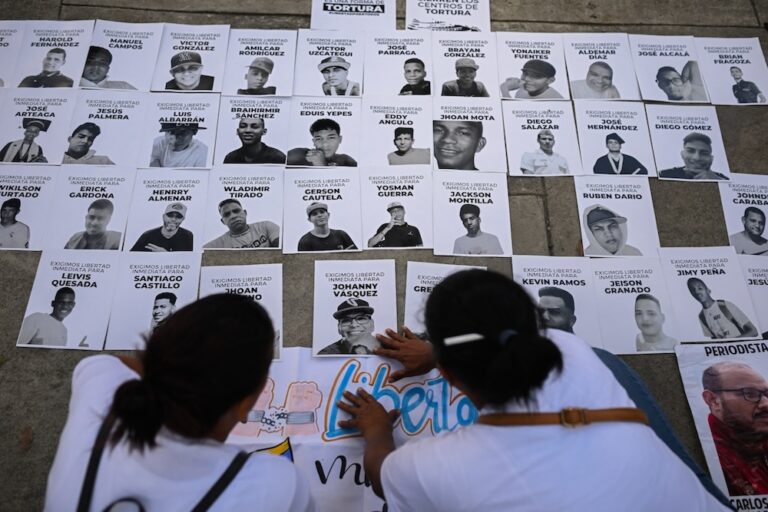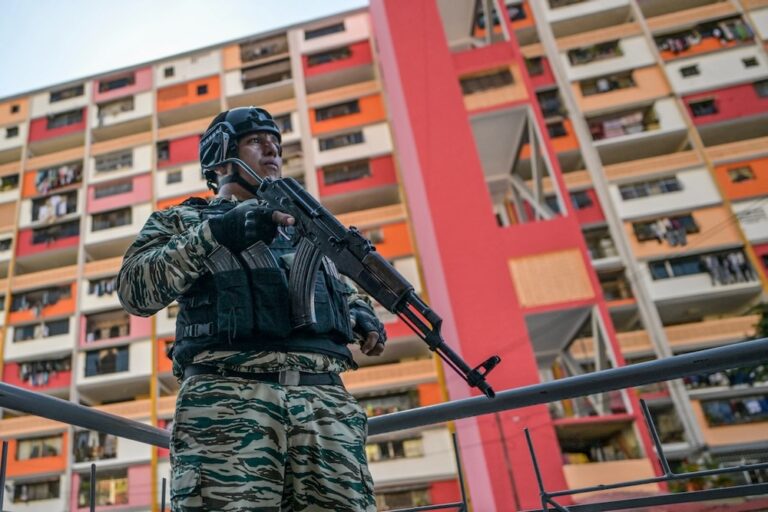CONATEL ordered the stations' closure and had their broadcast equipment seized for alleged "clandestine and illegal use of the radio waves."
(RSF/IFEX) – 15 November 2011 – Leocenis García, the editor of the weekly “Sexto Poder”, has been on a hunger strike for the past week to protest his detention since 30 August on charges of inciting hatred, insulting officials and offending women by publishing a controversial cartoon of senior female government officials on the publication’s cover. His lawyer told Reporters Without Borders that García intends to continue the hunger strike until the charges are dropped. The defence meanwhile intends to file a new petition in the next few days.
“We cannot encourage García to put his health or life in danger and we therefore urge him to abandon this hunger strike,” Reporters Without Borders said. “But we join him in denouncing the absurdity of these proceedings and the misuse of ‘preventive detention’ in the case of a man who turned himself in to the authorities. The way he is being treated flouts the most elementary legal principles, including the presumption of innocence that applies to every person.”
Reporters Without Borders is concerned that there are no signs of any move by the government to defuse the current polarized climate, in which only media that do not support the government are the target of punitive administrative measures.
Using its powers under article 182 of the Telecommunications Organic Law, the National Telecommunications Commission (CONATEL) ordered the closure of five radio stations in the western state of Zulia, Titán, Coquivacoa, Kalor, Romance and Machiques Stereo, and had their broadcast equipment seized on 3 November for alleged “clandestine and illegal use of the radio waves.”
Radio Kalor owner José Ramón Socorro said CONATEL’s representatives came with 50 National Guard members and stormed into the station “at the every moment when programmes critical of the government’s performance were being broadcast.”
Luis Domingo Alvarez, news and opinion director of the Center AM and FM radio network, recently pointed out that 250 radio stations are currently unable to broadcast because they have been placed under a CONATEL moratorium, and more than a thousand other radio stations could soon face the same difficulties because they are using frequencies that have been deemed illegal.
Reporters Without Borders is also concerned about the proposed People’s Power Communication Law that is to be debated in the National Assembly. “Is the intention really to restructure the media landscape in a balanced manner, as other countries in the region have done?” Reporters Without Borders asked. “Or, when they talk of ‘People’s Power Media,’ do they mean those broadcast media outlets that will be assigned a frequency because their editorial content finds favour with the government? That is the issue.”
The privately-owned TV news station Globovisión has meanwhile announced that it will file a new appeal before an administrative court in the next few days against the US$2 million fine handed down against it on 18 October for its coverage of a prison riot in June. The station’s coverage of the incident was deemed to have justified criminal activity and disrupted public order. The size of the fine threatens the station’s survival.


